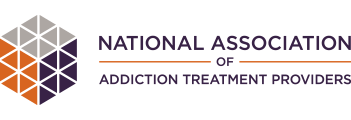Premier Residential Treatment Center: Drug & Alcohol Addiction & Behavioral Health
Our experts at Sierra Tucson are committed to clinical excellence.
This is why miracles happen here everyday.
Our mission is to provide a safe place for emotional, physical, and spiritual healing with a collaborative community of professionals who provide insight, understanding, and empowerment enhanced by a lifetime of alumni support.
“The time spent at Sierra Tucson was the true beginning of my journey. Not only did I overcome my addictions, but I began to focus on the root causes that created my compulsions. I understand myself so much better now.”
Sierra Tucson
Providing Exceptional Drug & Alcohol Addiction & Behavioral Health Treatment
Find Your Path at Sierra Tucson
Since 1983, the caring and skilled staff at Sierra Tucson has been dedicated to providing clinical excellence and compassionate, effective treatment for all who are entrusted into our care. Recommended by doctors and therapists across the world, we are recognized for providing safe and successful treatment for those who are struggling with addiction and a wide range of complex behavioral health disorders. Our renowned programs have resulted in positive change in the lives of over 34,000 residents and more than 90,000 family members.
We are here to help you through this difficult time. It takes courage to seek treatment, and we are committed to helping you through this process.
With extensive training and decades of experience, Sierra Tucson maintains a high standard of excellence in the clinical treatment programs that we offer for individuals aged 18 and older, who are struggling with drug & alcohol addiction, depression, anxiety, trauma, and co-occurring disorders such as disordered eating. By utilizing a multidisciplinary approach, we help you learn how to successfully manage symptoms, overcome challenges, and develop the skills needed to manage your disease and return to your family, friends, and a productive lifestyle.
Please call us today to speak with a knowledgeable staff member who can answer your questions, guide you in the direction that will be most beneficial in meeting your needs, and assist you in getting started on the road toward overall wellness. Your new journey will soon begin at the nation’s leading addiction and mental health treatment center, Sierra Tucson.
The Sierra Tucson Model®
The Sierra Tucson Model integrates philosophies and practices from the medical, psychological, family systems, and self-help communities. The 12-Step Program and other addiction support group options enhance intensive psychiatric care. The result is a powerful treatment experience.
Every program we offer is shaped by the philosophy of our model. Because it is designed to treat the whole person, residents learn to understand the underlying causes of emotional and behavioral disorders and recognize how to manage their disease throughout their lifetime. This prepares them for the challenge of staying healthy once treatment ends.
About The Sierra Tucson Group
The Sierra Tucson Group, which is part of Acadia Healthcare, is currently comprised of Sierra Tucson, Sierra at Southlake and Sierra at Scottsdale. Internationally renowned for its innovative approach and legacy of providing clinically excellent care for behavioral and mental health concerns, Sierra Tucson combines integrated care with evidence-based practices to provide a full range of leading treatment methods.
Building Long-lasting Recovery For Our Clients







